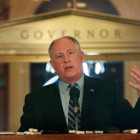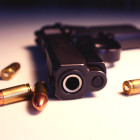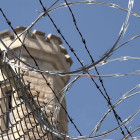
By Eric Ferkenhoff and Maryam Jameel
Only hours before a Sunday deadline, Illinois Gov. Pat Quinn inked a $33.7 billion budget Saturday, balancing the books but angering some education and child welfare experts and confounding political observers who said the Democrat may well have done more harm than good to the state’s neediest residents. Quinn, facing a $43.8 billion budget deficit – reportedly the nation’s worst — before the new fiscal year 2013 kicked in, took a budget that the General Assembly handed him on Friday, and cut it by $57 million. In doing so, Quinn said ”our priority should always be the safety and well-being of our children,” and promised to return some of the Illinois’ legislature’s planned $50 million in cuts to the Illinois Department of Children and Family Services, or DCFS, the agency that handles most abuse and neglect cases and shelters the most at-risk. But critics said just the opposite could happen as Quinn, while saying he was protecting children and their education, cut $200 million in education funding and $85 million in child-welfare funding. Kent Redfield, an Illinois political expert and a professor emeritus at the University of Illinois at Springfield, said that while the cuts bring immediate savings, they could deepen problems, leading to bigger spending down the road.



